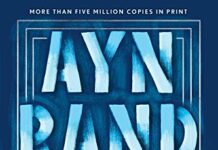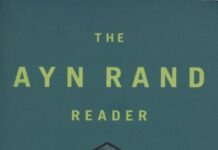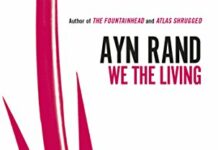
Ebook Info
- Published: 2000
- Number of pages: 194 pages
- Format: EPUB
- File Size: 0.21 MB
- Authors: Ayn Rand
Description
In 1958, Ayn Rand, already the world-famous author of such bestselling books as Atlas Shrugged and The Fountainhead, gave a private series of extemporaneous lectures in her own living room on the art of fiction. Tore Boeckmann and Leonard Peikoff for the first time now bring readers the edited transcript of these exciting personal statements. The Art of Fiction offers invaluable lessons, in which Rand analyzes the four essential elements of fiction: theme, plot, characterization, and style. She demonstrates her ideas by dissecting her best-known works, as well as those of other famous authors, such as Thomas Wolfe, Sinclair Lewis, and Victor Hugo. An historic accomplishment, this compendium will be a unique and fascinating resource for both writers and readers of fiction.
User’s Reviews
Reviews from Amazon users which were colected at the time this book was published on the website:
⭐When Ayn Rand wrote
⭐, she spent 13 years crafting a large Philosophical “What if?” that has recently become popular due to its overlapping resonance with current events. At 1300 pages and 650 thousand something words, it is one of the longest printed books written orginally in English. In this guide for fiction, Ayn Rand claims that she has a specific reason for each individual word in the novel.Ayn Rand claims many things and elaborates on them to mind-numbing degrees. But in the end, she proves to be a surprisingly good teacher.This “book” is really just a collection of transcripts: typed up lessons taken from handwritten notes over the course of 12 informal classes that Rand held in her living room with a few personal friends. Amongst other things, she uses examples from her own work, the work of Victor Hugo, and the work of contemporaries of her time period.I have long been a fan of Rand: not for her philosophy, but for her story-telling ability. Now, I do agree with some of the statements she has made, but after conquering Anthem, the Fountainhead, and Atlas Shrugged, I have come to the conclusion that its best to take every premise of hers with a grain of salt, and work to make it work for you.That being said, this instruction guide isn’t as off-putting as John Galt’s infamous 70 page monologue in Atlas Shrugged. Because this is based on Rand speaking, not writing, her authorial voice comes off as much more human and less robotic than that on her fiction pages. She comes across to the reader as a sweet, but firm helping hand.Now, down to the nuts and bolts, the meat of the book: the advice.Rand’s lessons are almost spot on. The earlier few, about her unique views on inspiration, plot-building, and the devolpment of themes are absolutely the best advice I have read on those subjects thus far–( I have read
⭐,
⭐, and
⭐). Rand gives great insights for both wanna-be writers and some fringe-people who want to become hardcore literary critics.Next, Rand moves on to getting into Characterization. These chapters are helpful and well-written, but Rand sort of reverts to her philosophy-spouting antics as usual. I could deal with that for these chapters.Then, comes the hardest part: the basic techniques of writing. The specifics. Meaning: individual word choice, sentence structure, and style. These sections are essentially self-patronizing prose that point to the glory of her own creativity. I can appreciate Rand’s writing ability, but it becomes difficult to as she bashes other writers and discusses her own perfect style.Some interesting ideas Rand brings to the table:- Inspiration is not divine, it comes from within you, your subconscious. It happens when your subconscious adds up multiple ideas.- the differences between “concretes” and “abstracts”.- Never cite any pop-culture references. If you need to, make sure the thing has been around for a long time, i.e. 50 years or so.*** A Note: Rand is primarily a philosopher, not an author. If you want to write action packed detective stories, this is not for you. Read King’s “On Writing” instead, or maybe do some other research. This is made to teach people how to write deep, moving novels with a message.****** Personal Note: I am a 17 year old guy with some *major* English Language/Literature interest. I was able to comprehend everything in this book, Atlas Shrugged, and the Fountainhead. So don’t be discouraged because of your age or reading ability, as, in this book especially, Rand uses “kitchen talk” , simple, carefree speak that everyone can understand. She also defines most of the terms she uses, so that her pupils know exactly what she talks about.
⭐”In regard to precision of language I think I myself am the best writer today.” (P. 10)OK-this is Ayn Rand, so you either love her or hate her. But you do have to admit that she is one the world’s clearest thinkers. She not only knows what she believes, but she also knows how to explain it, and explain it very well. This is exceptional when you consider that English is a second language.Moreover, her main qualification is writing the second-most influential book in America, with the Bible being number 1, “The Road Less Traveled” at 4, “Lord of the Rings” at 5, and “The Book of Mormon” at 8. That is no small feat, considering that “Atlas Shrugged” is over a thousand pages long, and beat out “Gone With The Wind,” “Man’s Search For Meaning,” and “To Kill M Mockingbird.”She covers the four topics of theme, plot, characterization, and style, and uses her keen mind to analyze the critical elements. You get a good feel for how good a writer Rand is when you compare her streamlined prose with Thomas Wolf’s raunchy vomiting.There is nothing new, per se, in this book. She has the gift of getting to the essence of an issue. She also covers twice as much information in about half the page space. You do not get bogged down in verbal circumlocutions.I would suggest reading this book, then reading “Philosophy: Who Needs It?” and then “The Romantic Manifesto.” There are deep ideas behind her faction, and this book is a summation of her intellectual point of view. As a Mormon, I disagree with much of her philosophy. However, if someone has a good idea, I am honor bound to recognize it. “If there is anything virtuous, lovely, or of good report or praiseworthy, we seek after these things.”Rand’s strength is that she is operating from a philosophic point of view. We really do not have philosophic fiction writers, outside of C. S. Lewis, Nietzsche and Sartre. This is not to say that other authors do not have ideas, but that they are not operating from a certain point of view. This is why Rand is so engaging: instead of presenting a mental muddle, she actually has a point to what she writes. Hence her precision in language.
⭐This book is based on a recording of Ayn Rand lectures delivered in 1958 in which she discussed how to write fiction: what are theme, plot, characterization and style, and how to improve and enliven them. Her basic teaching is that people need to observe what they see very carefully, think about it, and let the impressions be stored in their in their subconscious. When they write, they should allow their thought to flow freely from their subconscious.What are the steps? First, pick a theme, what you want to write about. State it clearly, in no more than two sentences. The plot, which comes next, dramatizes the theme, preferably with actions and conflicts.All of Rand’s writings reflect her philosophy that people need to have a purpose and move step by step toward that purpose. Thus, a fiction writer needs to know the end of the novel before she starts. Then the writing must move forward toward that purpose/end, with clear concrete statements rather than abstractions.Rand offers examples on virtually every page, sometimes several pages long. She offers her views on about a dozen writers.Some readers may be bothered by two things. First, she seems to overuse her own books as examples, as if she was quoting from the Bible. Second, she insists that fiction must convey the kind of life that a reasonable person would like to live. Thus, when Dostoevsky portrays a life of pain and suffering, but does not project “what he (Dostoevsky) considered good,” he was “didactic” (only a teacher), but a flawed novelist. What he wrote was good, but it was not fiction.
⭐No-nonsense advice from 1958. Culled from a series of friendly lectures given in Ayn Rands’ living room, the book is clear, old-fashioned, good sense. She uses examples from Victor Hugo, Mickey Spillaine and her own work. An old fashioned ‘how-to’ book by someone who has lived the writing life. She poses questions that stimulate further reading and writing. Even if you don’t agree with her philosophy of Objectivism, The Art of Fiction could add further depth to your reading and writing.
⭐Very good
⭐Tore Boeckmann and Leonard Peikoff have done a tremendous job in putting this book together. They made a class alive again taken by Ayn Rand on writing. Ayn’s speaking is captured in this book. One can learn various aspects of writing through this book. And might be one can write like Ayn and produce hit novels.Must read for moderate level writer as it give deep insights and take you to next level. I didn’t mention start-up writers as from my point the book do not follow a chronological order to learn writing from start.
⭐Best book to have, this can replace an entire screenwriting post graduation course orSpecialization. There is just so much detailed information including examples from various novels. Worth its value… rather more.
⭐It is a very well presented view on how fiction should be conceived. It covers from plot and characters to subtleties on style. Really a must.
Keywords
Free Download The Art of Fiction: A Guide for Writers and Readers in EPUB format
The Art of Fiction: A Guide for Writers and Readers EPUB Free Download
Download The Art of Fiction: A Guide for Writers and Readers 2000 EPUB Free
The Art of Fiction: A Guide for Writers and Readers 2000 EPUB Free Download
Download The Art of Fiction: A Guide for Writers and Readers EPUB
Free Download Ebook The Art of Fiction: A Guide for Writers and Readers


